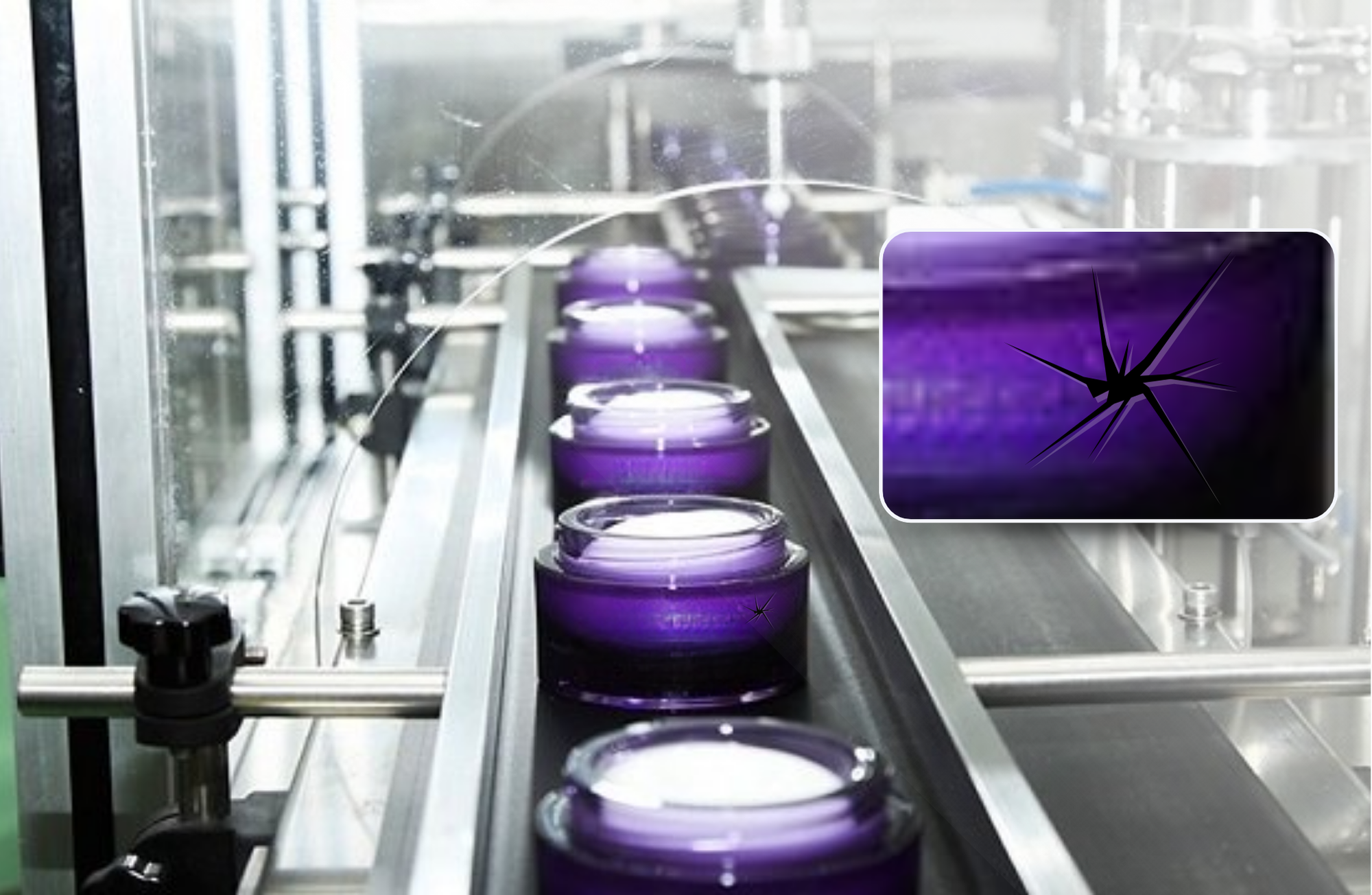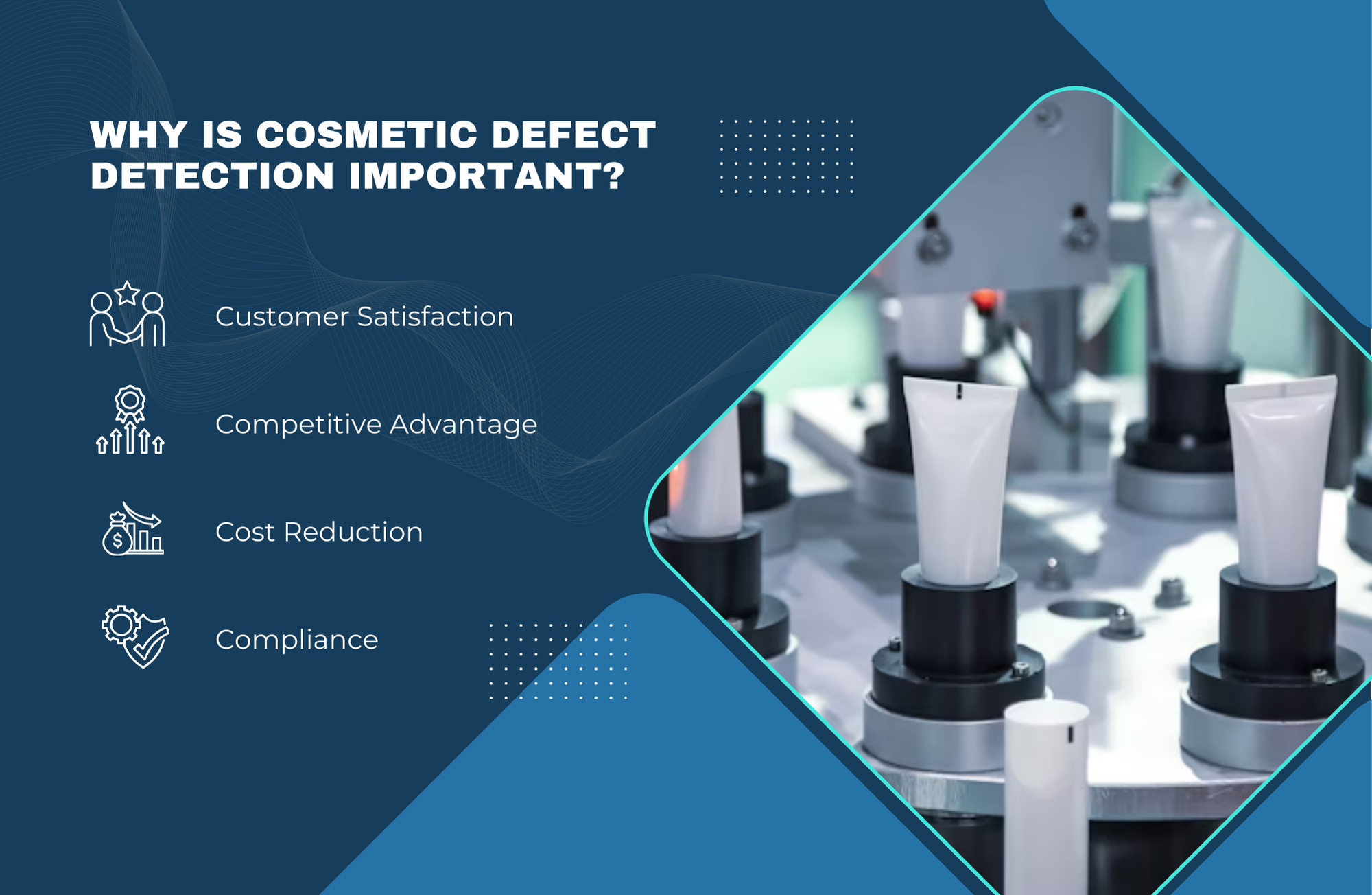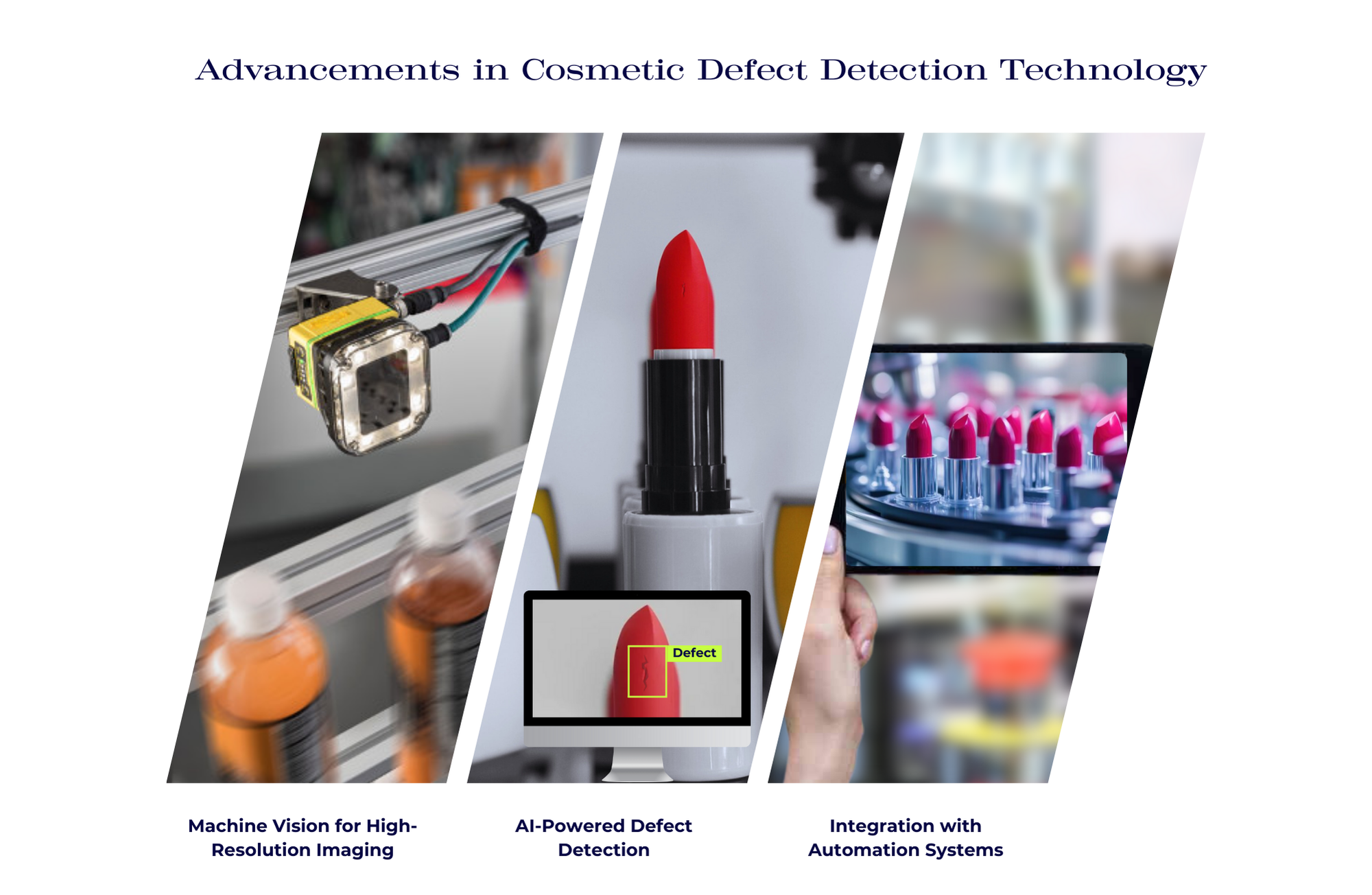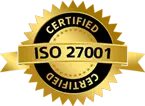Cosmetic Defect Detection in Manufacturing
Published on: Dec 10, 2024

Written by: Soumen das
Cosmetic Defect Detection in Manufacturing: Enhancing Quality Control with AI and Industrial Imaging technology
Cosmetic defects—such as scratches, dents, discoloration, surface irregularities, and poor finishes—can diminish the perceived quality of a product, even if it performs its intended function flawlessly. For industries like automotive, electronics, packaging, and consumer goods, ensuring defect-free aesthetics is as critical as ensuring functionality.
The process of cosmetic defect detection is being revolutionized by machine vision systems and AI-powered inspection technologies, enabling manufacturers to achieve unparalleled accuracy and efficiency in quality control.

What Are Cosmetic Defects?
Cosmetic defects are surface-level imperfections that affect the visual appearance of a product but may not compromise its structural integrity or functionality. These defects can occur during various stages of manufacturing, including material handling, machining, assembly, or finishing.
Common Types of Cosmetic Defects
- Scratches and Scuffs:
- Often caused by material handling or abrasive contact.
- Dents and Dimples:
- Occur during machining, assembly, or transportation.
- Discoloration:
- Results from improper coating, painting, or material inconsistencies.
- Surface Irregularities:
- Includes uneven textures, bubbles, or grain inconsistencies.
- Incomplete Finishes:
- Such as missing paint, uneven polishing, or coating defects.
- Contamination:
- Presence of dust, oil, or residue on the surface.
Why Is Cosmetic Defect Detection Important?
1. Customer Satisfaction:
Products with visible defects can lead to negative customer perceptions, reduced satisfaction, and potential loss of brand loyalty.
2. Competitive Advantage:
High-quality, defect-free products differentiate a brand from competitors in highly saturated markets.
3. Cost Reduction:
Early detection of defects prevents defective products from reaching customers, reducing rework, returns, and warranty claims.
4. Compliance:
Certain industries, such as automotive and medical devices, have stringent quality standards that include aesthetic requirements.

Challenges in Cosmetic Defect Detection
Detecting cosmetic defects presents unique challenges due to their subtle and varied nature:
- Subjectivity:
Cosmetic defects are often subjective, relying on human inspectors' judgment, which can vary significantly. - Surface Complexity:
Reflective, textured, or curved surfaces make it difficult to detect defects consistently. - Defect Variability:
Cosmetic defects vary in type, size, and location, requiring adaptable inspection systems. - High-Speed Production:
Inspecting products on fast-moving production lines demands real-time, automated solutions. - Manual Inspection Limitations:
Human inspectors can experience fatigue and inconsistency, leading to missed defects and reduced efficiency.
Advancements in Cosmetic Defect Detection Technology
The integration of machine vision systems and AI-powered inspection tools has transformed cosmetic defect detection in manufacturing, addressing many of the challenges associated with traditional methods.
1. Machine Vision for High-Resolution Imaging
Machine vision systems use high-resolution cameras and optimized lighting to capture detailed images of product surfaces.
- High-Precision Imaging:
Captures subtle defects, such as fine scratches or texture irregularities, with exceptional clarity. - Multi-Camera Systems:
Enables 360-degree inspection of complex or irregularly shaped products. - Adaptable Lighting Solutions:
Diffuse, directional, or multi-angle lighting enhances defect visibility on reflective or textured surfaces.
2. AI-Powered Defect Detection
Artificial Intelligence (AI) enhances the accuracy and efficiency of defect detection by analyzing images and identifying anomalies with unmatched precision.
- Customizable AI Algorithms:
Trained on large datasets of defect examples, AI models can identify specific cosmetic defects based on product type and material. - Real-Time Processing:
AI systems analyze high-speed video streams in real time, making them ideal for fast-moving production lines. - Defect Classification:
AI categorizes defects by type, size, and location, enabling manufacturers to prioritize corrective actions.
3. Integration with Automation Systems
Automated inspection systems integrate seamlessly with production lines, enabling continuous, real-time quality control.
- Sorting Mechanisms:
Automatically separates defective products from acceptable ones. - Feedback Loops:
Provides actionable insights to upstream processes, reducing the likelihood of recurring defects.

Intelgic’s Expertise in Cosmetic Defect Detection
Intelgic offers state-of-the-art solutions for cosmetic defect detection, leveraging advanced imaging, AI algorithms, and automation to meet the unique needs of manufacturers. Our systems are designed to handle a wide range of product types, surfaces, and defect criteria with precision and efficiency.
Why Choose Intelgic?
- Tailored Solutions:
Customizable inspection systems that align with your product specifications and production processes. - Cutting-Edge Technology:
High-resolution cameras, optimized lighting, and AI-powered software for accurate and reliable defect detection. - Comprehensive Support:
From consultation to implementation and maintenance, Intelgic ensures seamless integration and operation.
Cosmetic defect detection is an essential aspect of quality control in manufacturing, directly impacting customer satisfaction, brand reputation, and operational efficiency. By adopting advanced technologies like machine vision and AI, manufacturers can overcome the challenges of manual inspections and achieve consistent, high-quality results.
Intelgic’s innovative solutions empower manufacturers to automate and enhance cosmetic defect detection processes, ensuring their products meet the highest aesthetic standards. Contact us today to learn how we can help you revolutionize your quality control systems.

